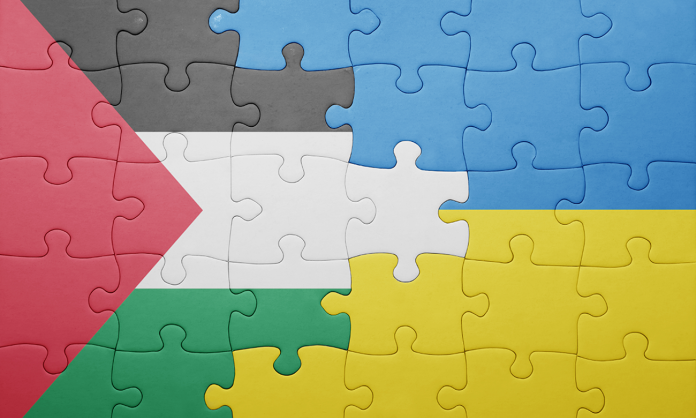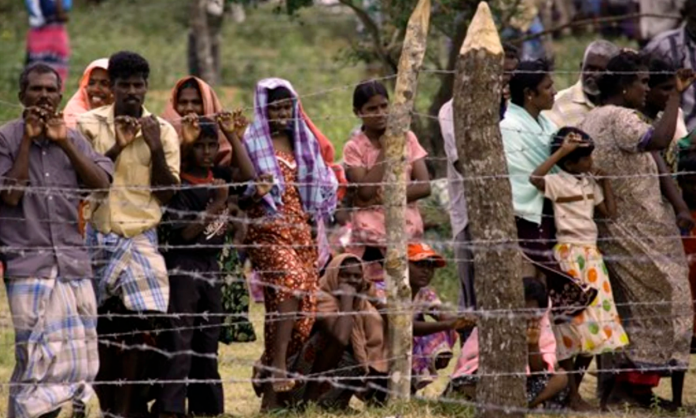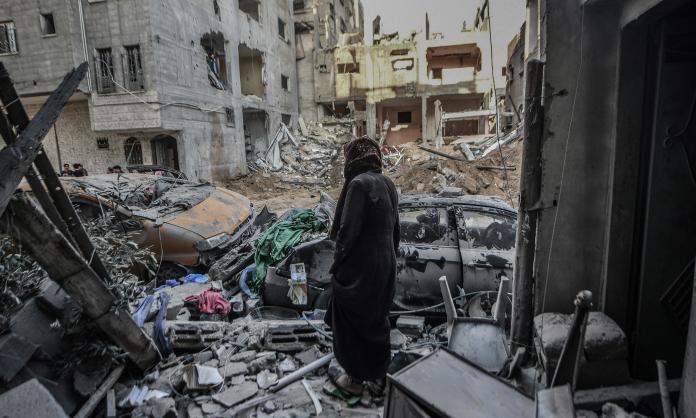When Russia invaded Ukraine in February last year, the response from Western leaders was immediate and unequivocal. Condemnation was heaped upon Russian President Vladimir Putin for his brutal military advance, which, as tanks rolled along the highways in a first thrust towards Kyiv, was already imposing a devastating toll on the Ukrainian people.
Within days, the United Nations had passed a motion condemning the attack. NATO convened an emergency meeting and promised to support the Ukrainian resistance. The US Congress hastily passed a bill to release more than US$13.6 billion in aid, a figure that by 31 July this year had grown to $76.8 billion. Australia has chipped in, to date, a total of A$910 million.
In a speech in September, US President Joe Biden explained the rationale. “The entire world has a stake”, he said, “in making sure that no nation, no aggressor is allowed to take a neighbour’s territory by force”. Other Western leaders have expressed similar sentiments. Australian Prime Minister Anthony Albanese said in June:
“The Russian invasion of Ukraine is illegal, is a breach of international law. The people of Ukraine are showing incredible courage in fighting not just for their national sovereignty, but fighting for the international rule of law to be upheld.”
In October 2022, the president of the European Commission, Ursula von der Leyen, spoke out against “Russia’s attacks against civilian infrastructure, especially electricity”. These, she said, “are war crimes. Cutting off men, women, children of [sic] water, electricity and heating with winter coming—these are acts of pure terror. And we have to call it as such”.
Von der Leyen was right. These are war crimes. Take the terrible siege of Mariupol, which lasted from February to May last year. The city was surrounded and bombarded continuously for weeks on end. Its residents were denied electricity, heat, water, food and medical supplies. “It’s a complete catastrophe”, one resident told NBC News. “The shells hit anywhere and everywhere. There is no safe place in the city.”
If something is a war crime in one place, it seems logical that it would be a war crime in other places too. To the extent that something like “international law” exists, that’s how it’s supposed to work. And, indeed, when it comes to Ukraine, Western leaders like Biden, Albanese and von der Leyen talk as if their concerns about Russia’s crimes are based on a commitment to universal principles and norms.
In recent weeks, however, as Israel has carried out exactly the same kind of crimes against the Palestinians in Gaza, we’ve seen just how flexible these supposed “principles” really are.
There’s a clear correlation between the plight of the Ukrainians fighting off Russian invasion and that of the Palestinian people and their resistance to the brutal occupation and apartheid policies of Israel. Like the Ukrainians, the Palestinians are fighting for their national rights against a vastly more powerful and well-armed adversary bent on crushing them. Like the Ukrainians, their land has been invaded and occupied and their cities have been laid siege to and bombed into rubble.
In fact, the crimes committed against the Palestinians by Israel over more than 70 years are of an order of magnitude greater than anything carried out, so far, by Russia in Ukraine. The establishment of Israel in 1948 was accompanied by a genocidal campaign in which thousands of Palestinians were killed and hundreds of thousands forced to flee, the vast majority never to return. Palestinians call it the Nakba (catastrophe). Since then, Israel has waged a continuous campaign of expansion, corralling the Palestinians who remain into ever smaller and more tightly controlled enclaves.
To say Western leaders are reluctant to make the very clear and logical connection between Ukraine and Palestine would be an understatement. Not only do they not make the connection, they have entirely turned the truth on its head, arguing in effect that the Palestinians, rather than the Israelis, are the ones doing the oppressing.
In the aftermath of the Hamas-led attack on 7 October, we heard again and again about Israel’s “right to defend itself”. With Biden leading the way, politicians across the West gave a green light to what came next: the attempt to inflict a second Nakba on the Palestinians in Gaza by carpet-bombing their homes and demanding that more than 1 million people relocate to the south. This would be as if, in the context of Ukraine, Western leaders had given their full support to Russia’s invasion on the basis that it was merely “defending itself”—as Putin claimed at the time—from the threat posed by the militants of the Azov regiment, known for its affiliation with the fascist right.
In a 19 October speech, Biden made a direct connection between Hamas and Putin, arguing that “they both want to completely annihilate a neighbouring democracy”. To the extent there’s an “annihilation” going on in Palestine, though, it’s being carried out by Israel against the Palestinians. This has been the case for more than 70 years. It was clear before 7 October, and it’s even clearer in light of what’s happened since.
From the standpoint of the kind of universal principles and values Western leaders claim to adhere to, it’s the Palestinians, not the Israelis, who should be supported. The fact that the likes of Biden and Albanese have instead backed Israel—even going so far as to block motions pursued through the United Nations aimed at bringing a halt to the massacre in Gaza—tells you everything you need to know about how empty all their talk of human rights and the “international rule of law” really is.








